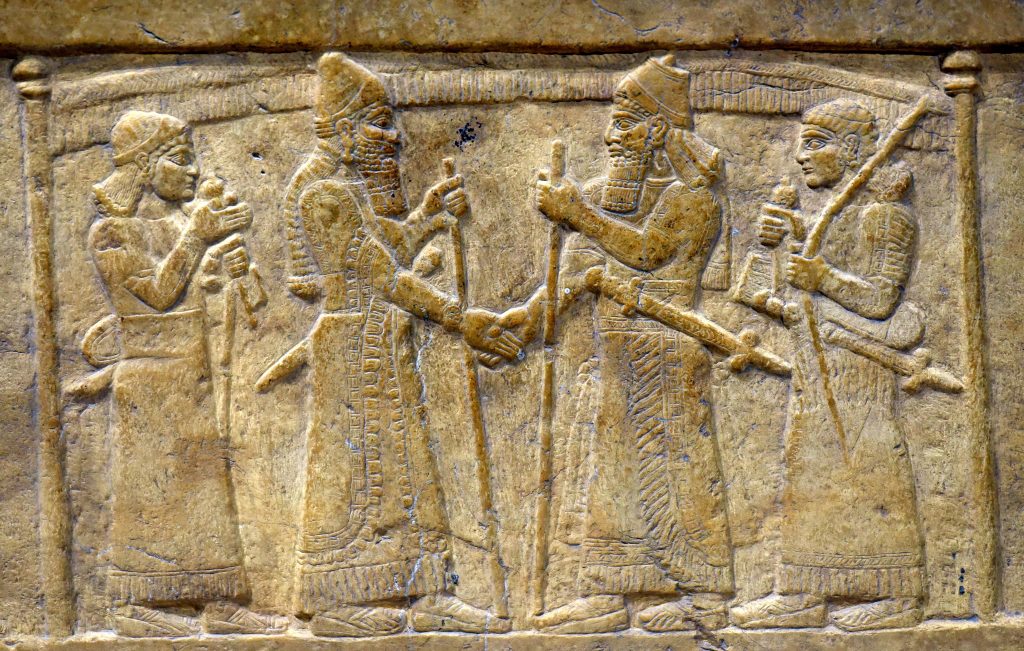THE PROJECT

This project has received funding from the European Union’s Horizon 2020 research and innovation programme under the Marie Sklodowska-Curie grant agreement No 101027543.
The GALATEO (Good Attitudes for Life in Assyrian Times: Etiquette and Observance of Norms in Male and Female Groups) project aims to understand anew the importance of etiquette in late Assyrian society (10th–7th century BCE) and to investigate through a multidisciplinary approach the extent to which etiquette influenced the subsequent cultures of the Middle East.
GALATEO was carried out at the University of Pennsylvania (Philadelphia, United States of America) as partner institution, and the Università degli Studi di Messina as the main beneficiary.

OBJECTIVES
- Creation of an online Atlas, to explore the ways in which etiquette may have persisted, through time and space down to modern times.
- Development of an adaptable sociological and anthropological theoretical model for the study of etiquette in the ancient Middle East.
Analysis of the reasons that underlie the meeting and hygiene etiquette and practice which regulate social interactions between men and women.
Research Methodology
The sociological perspective explores the way that correct behaviour in Assyrian society was codified and imposed during meetings, both religious and lay, in variously political, economic, and convivial settings. This will include the study of gestures, postures, proxemic interactions (i.e. use of space), the use and choice of language, and table manners. In this way it will be investigated how etiquette becomes a means for both men and women to display their social status and gender.
The anthropological perspective examines the etiquette of hygiene, especially concerning the practices of proper handwashing, bodily washing, facial cleanliness, and bodily purification from a religious point of view, the intention of which was to avoid the transmission of disease, such as sex and bodily pollutions, as well as the admission of evil spirits. This analysis will show how the extent to which hygiene plays a role in assigning order and integrity to a culture or group.
